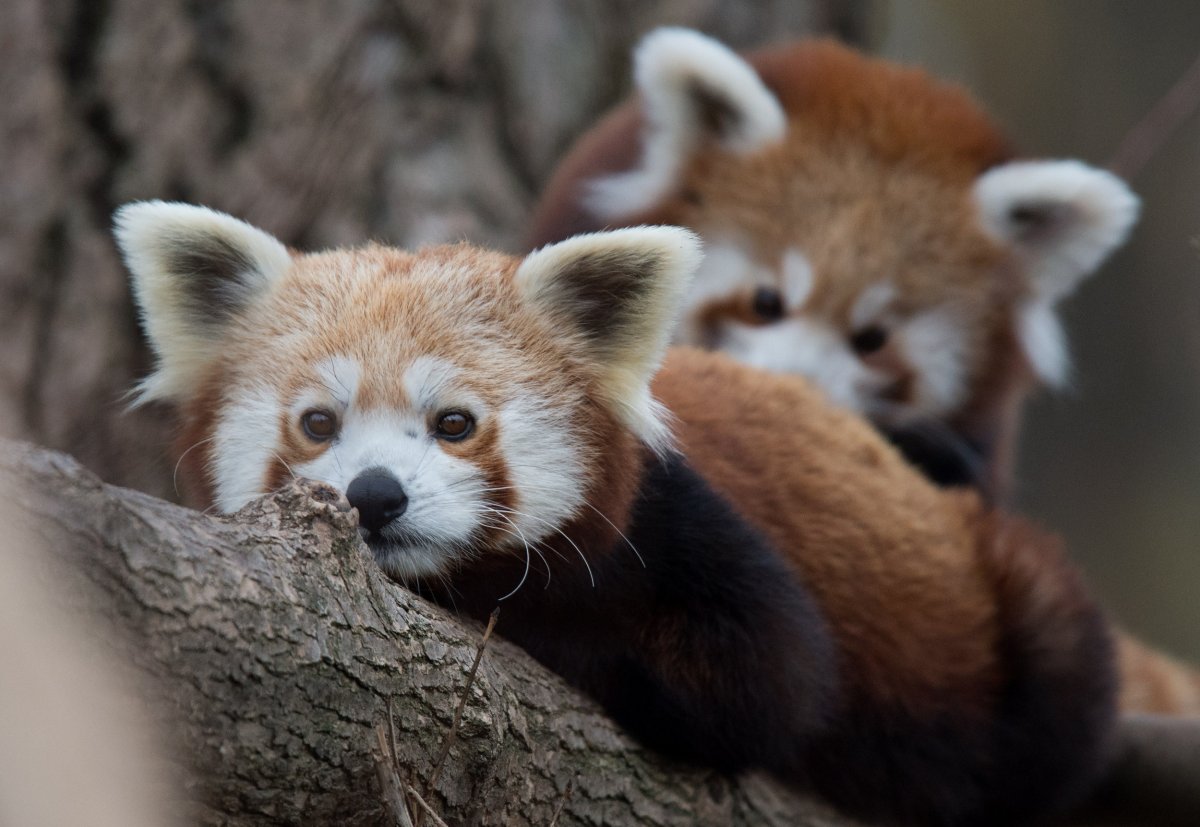Devastatingly cold temperatures killed twin red panda cubs on Thursday at the Longleat Safari Park in Wiltshire, England.
Temperatures plunged below zero degrees Celsius in the United Kingdom as an arctic blast hit the nation. Meanwhile, a similar arctic blast is expected to hit the United States this weekend and last through Christmas. The twin cubs, Tala and Sumi, were found dead in their nesting box, with the zoo reporting that they likely suffered from hypothermia.
The pair was born in September, with the zoo announcing the new additions on International Red Panda Day on September 17.
"We are incredibly sad to share some recent news from the park with you. Devastatingly, our twin Red Panda cubs Tala and Sumi have passed away," the zoo shared in a statement on Twitter accompanied with a photo of the twins on Friday. "They were found deceased in their nesting box yesterday, with initial veterinary investigations pointing towards hypothermia and the weaning process, with mum Emma no longer offering supportive feeds as the most likely reason."

Emma was a first-time mother to the twin females. The zoo acknowledged that it was very cold, but red pandas can withstand temperatures as cold as minus 15 degrees Celsius in the wild. Red pandas live in the eastern Himalayas in places like China and Nepal. The zoo said despite an increase in diet, shelter and bedding, the cubs were likely still dependent on their mother.
The zoo also mentioned that red pandas have a high mortality rate, with only 20 percent of cubs surviving to adulthood in the wild. Red pandas are an endangered species, and in an attempt to preserve the animals, the cubs were born as part of a breeding program at the zoo this summer.
When the zoo announced their birth, staff said they hoped the twins would play an important role in preserving the endangered species.
Tala and Sumi were popular residents at the zoo, with hundreds of people engaging in any tweets that included photos of the pair.
Baby red panda feeties. You're welcome! 🥰 pic.twitter.com/vSidD2cqKS
— Longleat (@Longleat) September 21, 2022
Two weeks ago, the zoo shared photos of the cubs on Twitter with the caption: "Nothing could ever dampen this cuteness."
"We know so many of you have loved seeing these beautiful creatures for yourselves and will share our sadness in having to say goodbye to them," the zoo added in its statement on Friday. "Thank you for your understanding at this time, especially for our keepers who formed such a special bond with them both."
Newsweek reached out to Longleat Safari Park for comment.
Uncommon Knowledge
Newsweek is committed to challenging conventional wisdom and finding connections in the search for common ground.
Newsweek is committed to challenging conventional wisdom and finding connections in the search for common ground.
About the writer
Anna Skinner is a Newsweek senior reporter based in Indianapolis. Her focus is reporting on the climate, environment and weather ... Read more
To read how Newsweek uses AI as a newsroom tool, Click here.








